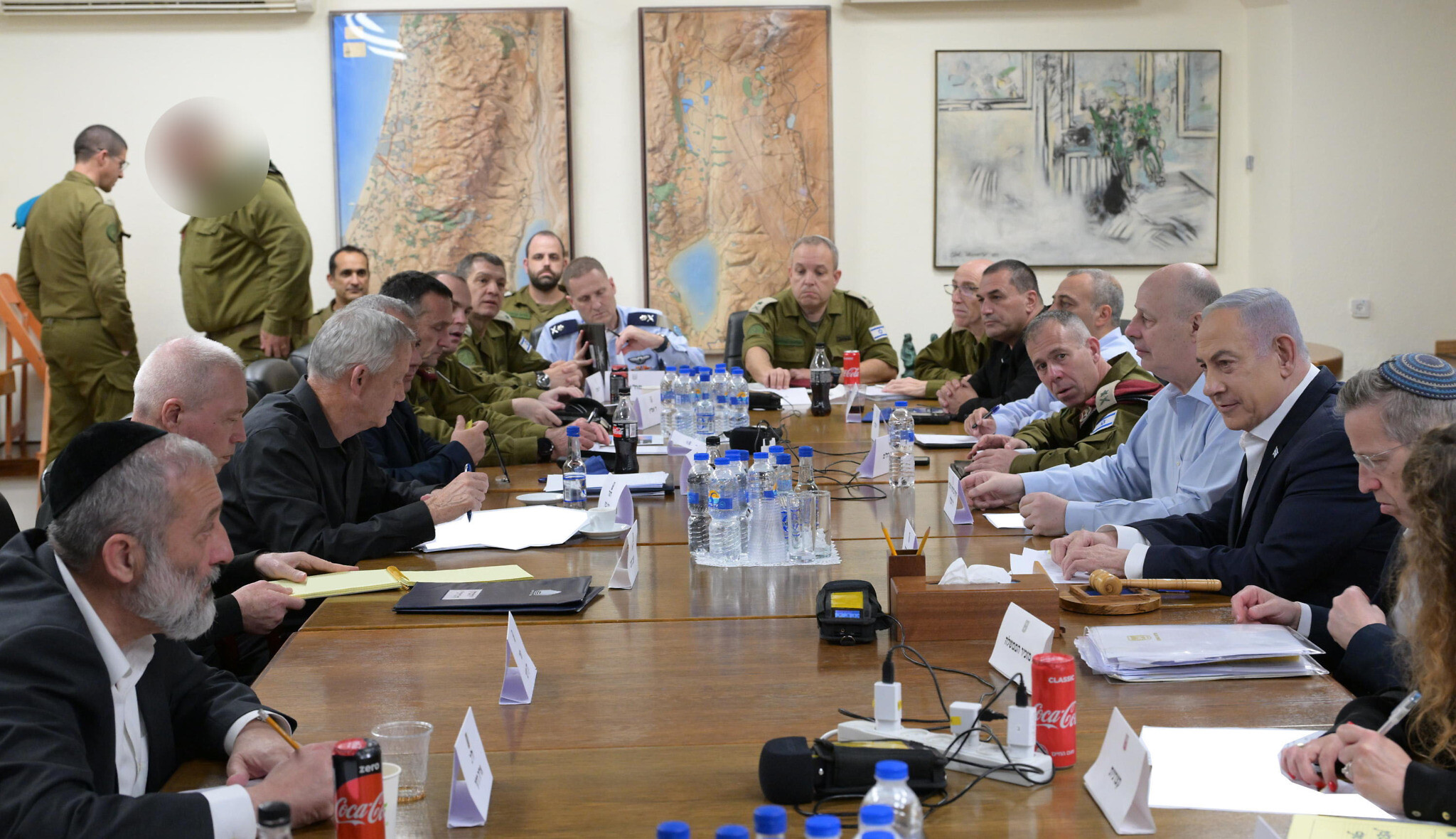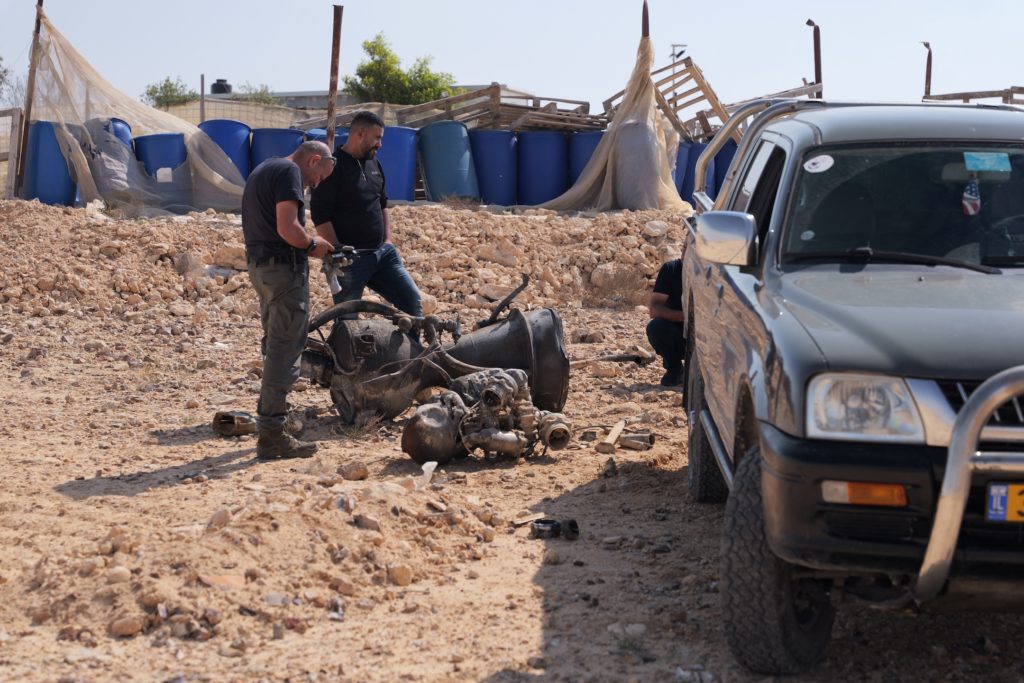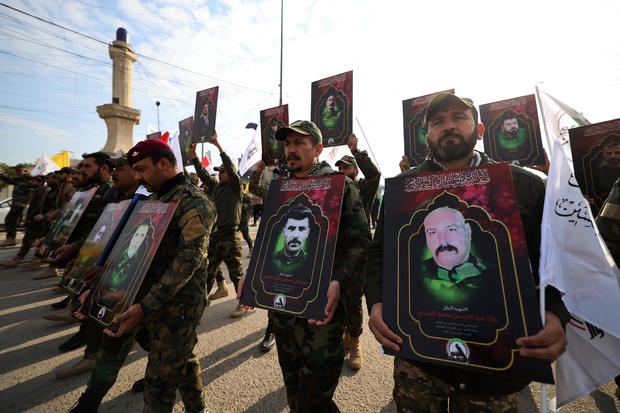Israeli War Cabinet Convenes In Response to Iran's Attack
Israel's war cabinet convened for the third consecutive day
on Tuesday to deliberate on a response to Iran's unprecedented direct attack.
The assault, comprising over 300 missiles, cruise missiles, and drones launched
from Iran into Israeli territory on Saturday night, prompted international
concern over the escalating tensions in the Middle East.
While Israel's robust air defenses and countermeasures
mitigated casualties and damage, the incident heightened fears of broader
conflict between the two longstanding adversaries and exacerbated the ongoing
violence stemming from the Gaza war.
In retaliation for an airstrike on its embassy compound in
Damascus attributed to Israel on April 1, Iran orchestrated the attack but
signaled a reluctance to further escalate hostilities. President Joe Biden
assured Israeli Prime Minister Benjamin Netanyahu that the United States,
Israel's primary ally, would not participate in any Israeli counter-strike.
Instead of military action, the United States and European
allies are advocating for intensified economic and political sanctions to
dissuade Israel from retaliating violently. Israeli Foreign Minister Israel
Katz initiated a diplomatic offensive, urging 32 countries to impose sanctions
on Iran's missile program and designate the Revolutionary Guard Corps as a
terrorist organization, following Washington's lead.
Treasury Secretary Janet Yellen affirmed the U.S.'s
commitment to employing sanctions and collaborating with allies to disrupt
Iran's destabilizing activities. Meanwhile, European Union foreign ministers
scheduled a video conference to address the escalating tensions in the region.
Germany, France, and other EU members are considering extending existing
sanctions against Iran, with German Foreign Minister Annalena Baerbock planning
a visit to Israel to discuss de-escalation strategies.
The Group of Seven major democracies, led by British Prime
Minister Rishi Sunak, is also coordinating measures against Iran. Italy,
holding the G7 presidency, hinted at targeting individuals with new sanctions.
Amidst the diplomatic maneuvering, Iranian Deputy Foreign Minister Ali Bagheri
Kani warned of swift retaliation to any Israeli counterattack, emphasizing
Iran's readiness to respond within seconds.
The specter of Israeli retaliation has stirred apprehension
among Iranians grappling with economic hardship and domestic restrictions.
Since the onset of the Gaza war, confrontations between Israel and Iran-aligned
groups across Lebanon, Syria, Yemen, and Iraq have escalated. Israel reported
injuries to its soldiers during an incursion into Lebanese territory, marking
the first such intrusion since the outbreak of the Gaza conflict.
The White House has refrained from advocating military
action, with national security spokesman John Kirby emphasizing the need to
avoid a war or regional conflict. Analysts speculate that the Biden
administration may refrain from imposing harsher sanctions on Iran's oil
exports to prevent fueling oil prices and antagonizing China, a major importer
of Iranian oil.
China, in a call between its foreign minister and Iranian
counterpart, expressed confidence in Iran's ability to manage the situation
while safeguarding regional stability. Russia, an ally of Iran, cautioned
against further escalation. Despite causing minimal damage in Israel, Iran's
attack garnered support in Gaza, where Hamas, the Iranian-backed militant
group, has been engaged in conflict with Israel.
The aftermath of the attack prompted several airlines to
cancel or reroute flights, with European aviation authorities advising caution
regarding Israeli and Iranian airspace. As tensions persist, the international
community remains vigilant, advocating for diplomatic solutions to prevent
further escalation in the volatile region.










.jpg)